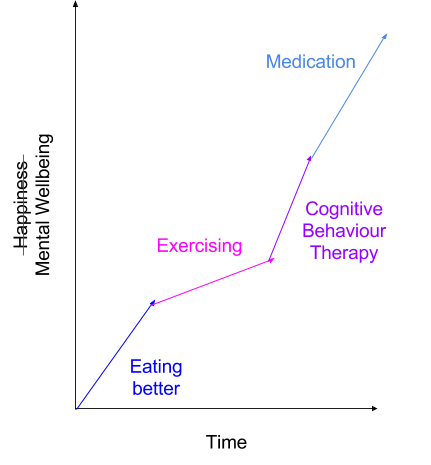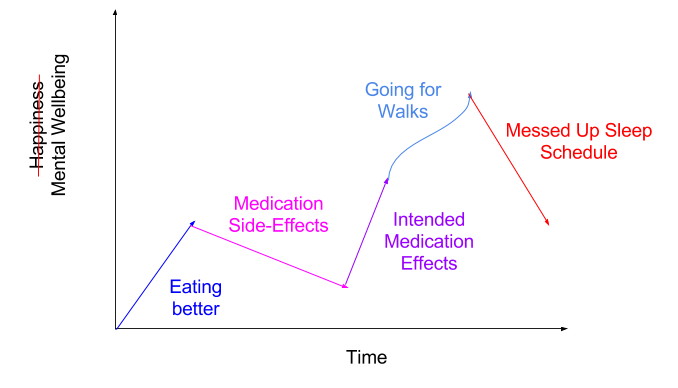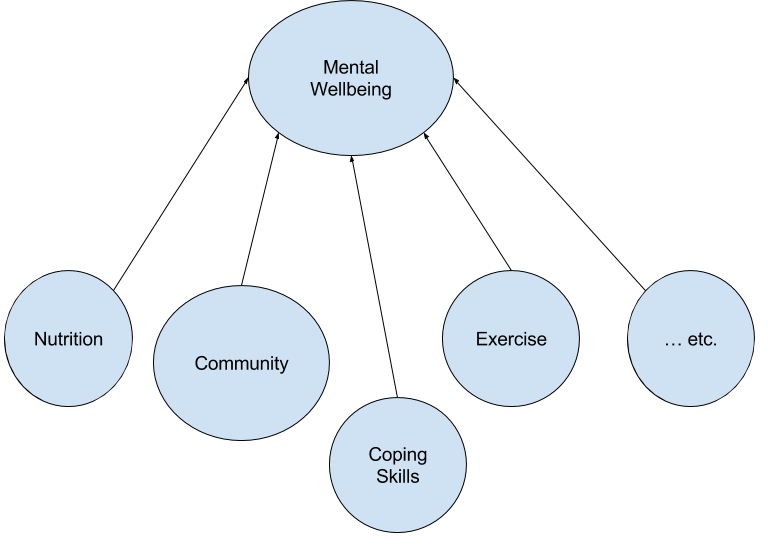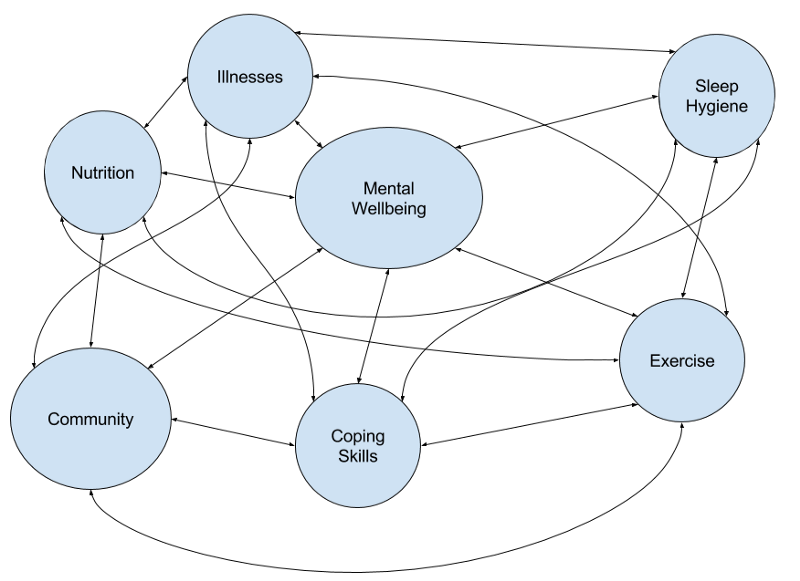Voyageur Technologique
The Nefarious Interconnectedness of Well-being
[epistemic status: probably the cheesiest thing I’ve ever written and has probably been said better elsewhere]
The University of Waterloo Health Services has a bunch of workshops on dealing with stress. These are helpful workshops. The advice is pretty standard:
- Sleep, eat and exercise.
- Use Cognitive Behaviour Therapy to deal with unhelpful thought patterns.
- If you’ve got weird brain things going on, take some medication.
The implementation details of these healthy habits aren’t given, since they’re specific to each person. However, it does give a person some weird expectations about progress. Specifically, progress should be linear and accumulate positively. This usually isn’t the case.
You would be forgiven for thinking the progress towards a better life is linear:

Instead, it usually looks like this:

Because instead of the progress on these things looking like a bunch of parallel branches:

You get some cluster-muffin like this:

To avoid getting stuck, some clinicians think focusing treatment around a network of symptoms instead of a single diagnosis could lead to better treatment SlateStarCodex has an excellent summary and analysis. . I’m not a clinician, so I’m sure as hell not going to comment on the validity of that strategy.
I don’t know have a cohesive solution for stuckness. Managing food is getting easier, thanks to things like Soylent. However, I feel supportive communities are under-rated. I think Mates (students helping students) and 7 Cups (the internet helping everyone) are trying to improve the scalability and approachability of communities.
Mostly, I just wanted to put this message out there, based on the belief that realistic expectations are beneficial. Recovery and coping is neither a uniform, nor a linear progression. Don’t expect it to be.
If you liked this article and want to read more about psychological research and therapy, consider subscribing to my mailing list.